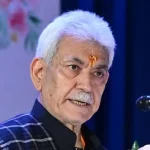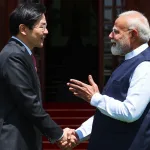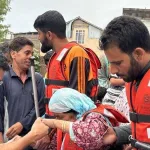P.M Narendra Modi’s visit to Ghana in July 2025, which is part of a five-nation tour, is the first visit by an Indian Prime Minister in over 30 years. The two countries have centuries-old close ties. India and Ghana have tried to build new bridges of mutual understanding and mutually beneficial relations. India gained independence on 15 August 1947 under the leadership of Gandhi and Nehru. Ghana gained independence on 6 March 1957 under the leadership of Dr. Nkrumah. The African nation gained independence from British colonial rule 10 years after India. Both India and Ghana struggled against British colonial rule. This helps build a strong bond between the two countries.
The Non-Aligned Movement (NAM), South-South cooperation, ‘Group of 77’, provided India and Ghana with alternative operational channels towards establishing an equitable world system through the process of ‘collective self-reliance’ diplomacy. Nehru and Nkrumah, being one of the key members of NAM, were the early faces of its development. India and Ghana are also members of regional and international organizations like UNO, IMF, WTO, AU, IAFS and TEAM-9 etc. These organizations are playing a major role in the development of bilateral relations.
India is the largest democracy in the world, and Ghana is the first democratic country in the African continent. Both India and Ghana follow the socialist model to develop their economies. In the past, we saw that the leaders of India and Ghana were playing a key role in the development of bilateral relations between the two countries. After independence, the charismatic leader of Ghana, Dr. Kwame Nkrumah became the first African person to visit India in 1961. When he arrived, Nehru said, “We are particularly attracted to the new countries of Africa, and I sincerely hope that in the future this bond of friendship and cooperation will prove beneficial to both… New desires are welling up in the hearts and minds of millions of people. We wish them well.” President Nkrumah’s visit was the cornerstone of strong India-Ghana bilateral relations.
Africa, including Ghana, also played an important role in Prime Minister Nehru’s vision of creating an international order. At that time, South-South cooperation played an important role in world politics. India’s prominent South-South cooperation drove India’s foreign policy towards Africa. This helped in the development of India-Ghana relations in the 1960s. The post-Cold War era in international affairs transformed the US-led unipolar order into a multipolar global order. The rise of power of the global South would be a major actor in that world order. This development in world affairs is changing India-Ghana relations in a new way.
Post-Cold War 1990s: After 1998, the policy of economic liberalization came to the fore in the whole world. At that time, both India and Ghana were facing economic crises, and both countries made changes in their economic policy to reduce the severity of the economic crisis. Ghana introduced a new economic policy named SAAP and India LPG. After these economic developments, a new dimension emerged in India-Ghana relations. In recent years, India-Ghana relations have been enriched by the increase in South-South cooperation efforts between the two countries.
Many Indian companies are establishing their presence in Ghana in both the public and private sectors. According to the Ghanaian High Commissioner, the public sector Bank of Baroda started operations in Accra in February 2008. It opened its second branch in Tema in August 2012. India is the second largest foreign investor in Ghana in terms of the number of projects and 9th in terms of the value of FDI. President Kafue visited India to attend the India-Africa Forum Summit held in New Delhi. In 2015, IAFS October presented that President Mahama also visited India. The latest development in India-Ghana relations, India’s first President Mukherjee, visited Ghana from 12 to 15 June 2016.This principle, which we saw in India’s Panchasheel principle, we have seen PM Narendra Modi also use this policy to improve bilateral and multilateral relations.
In India and Ghana relations, soft power policy plays a major role in the development of bilateral relations. The High Commission celebrated the 150th birth anniversary of Gurudev Rabindranath Tagore with various events in Accra. The Indian community in Ghana numbers around 10,000. Some of them have been in Ghana for more than 80 years. Business activities of Indians in Ghana have contributed in a major way. India is the second-largest investor in Ghana in terms of the number of projects. Most of the Indians in Ghana live in South Central, South Eastern, South Western or Southern major cities and towns. Relations with the health sector of India and Ghana play an important role in developing bilateral relations.
Health infrastructure is very poor across the African continent, including Ghana, but India has played a key role in improving the health sector on the African continent and in Ghana. For instance, the Chennai-based Apollo Hospitals group, which has an extensive network of hospitals in India and abroad, launched initiatives in West Africa, Ghana and Nigeria in 2003-2004.was a private hospital group. An Indian type of pharmaceutical company set up its factory in Ghana. Bilateral trade between India and Ghana grew from US$1 billion in 2011-12 to US$4.5 billion in 2018-19. Then it declined to US$2.2 billion in 2020-21 due to COVID. By 2023, bilateral trade is set to grow to around US$3.3 billion, making India the third-largest export and import partner after China and Switzerland. Indian companies have invested in more than 700 projects in Ghana. According to the Ghana Investment Promotion Centre, by 2021, Indian companies had invested more than US$2 billion in Ghana.
PM Modi’s visit to Ghana has given a new direction to the relations between the two countries. In which he said that “We were unanimous on the fact that terrorism is the enemy of humanity. We thank Ghana for its cooperation in our fight against terrorism. We have decided to strengthen our cooperation against terrorism. We have similar views about UN reforms,” PM Modi said after talks with Ghana’s President Mahama.
“We believe that this is not the time for war. Problems should be resolved through dialogue and diplomacy,” PM Modi said.”In the field of defense and security, we will move forward with the mantra of ‘security through solidarity’.”India is not only a partner but also a co-traveler in Ghana’s nation-building journey,” PM Modi said.”Our bilateral trade has crossed US$3 billion. Indian companies have invested $2 billion in about 900 projects. We have decided to double our trade in the next 5 years. In the area of fintech, India will share digital payments experience with UPI Ghana,” PM Modi said. “It is a matter of pride for India that under our G20 Presidency, the African Union got permanent membership of the G20,” the PM said.
The visit saw the signing of four MoUs between the two countries after talks between PM Narendra Modi and Ghana President John Dramani Mahama.
- MoU on Cultural Exchange Programme (CEP): To promote greater cultural understanding and exchange in arts, music, dance, literature and heritage.
- MoU between Bureau of Indian Standards (BIS) and Ghana Standards Authority (GSA): Aimed at enhancing cooperation in standardisation, certification and conformity assessment.
- MoU between Institute of Traditional and Alternative Medicine (ITAM), Ghana and Institute of Teaching and Research in Ayurveda (ITRA), India: To cooperate in traditional medicine education, training and research.
- MoU on Joint Commission Meeting: To institutionalise high-level dialogue and expand bilateral cooperation mechanisms. Review regularly.
These developments indicate that India has been making continuous efforts to strengthen ties with Ghana. India’s Duty-Free Tariff Preferential Scheme for Least Developed Nations, introduced in 2008, benefits 33 African states, including Ghana. The India-Africa Forum Summit – the official forum for African-Indian relations- is also contributing greatly to this building process. Various diplomatic initiatives have been taken to strengthen the well-established trade relations between India and African countries in the past.
(The Author is Assistant Professor University of Delhi. Feedback: [email protected])








